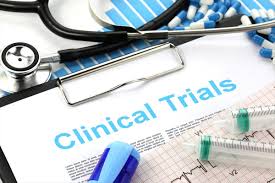
In 2017, Maria Morais began experiencing intense abdominal pain, eventually leading to gallbladder surgery. However, the procedure failed to alleviate her discomfort, and subsequent tests revealed abnormally high liver enzyme levels. As a registered nurse, Maria recognized that something was seriously wrong.
"I was always exhausted. No matter how much I rested, it never seemed to help," she recalls.
After undergoing numerous medical tests, a hepatologist conducted a fibroscan in 2018, which diagnosed Maria with a rare autoimmune liver condition known as primary biliary cholangitis (PBC). According to the National Institutes of Health, around 130,000 people in the U.S. — primarily women — are affected by this debilitating disease, which, if left untreated, can progress to chronic liver damage.
“Getting diagnosed with PBC was a complete shock,” Maria says. “It was ironic because, as a nurse, I focus on public health and preventing chronic diseases.”
At the time of her diagnosis, Maria’s disease was classified as stage 1, but her liver damage worsened rapidly. She dealt with the relentless itching often associated with PBC, while her immune system attacked her bile ducts, leading to inflammation and scarring. As her liver deteriorated, fluid began to accumulate in her abdomen, requiring weekly draining procedures.
"Liver diseases are often invisible, but I was gaining and losing 20 pounds of fluid each week. It was like going through pregnancy repeatedly," Maria explains.
Between the itching and fluid retention, she began withdrawing from social interactions, with others sometimes questioning whether her condition was contagious. Her symptoms became increasingly unmanageable.
"I started wondering, 'Is this how my life will be?'" Maria recalls. "My son was only 12, and he saw me every night, disengaged and down on the couch."
By the end of 2020, Maria was referred for a liver transplant. In the summer of the following year, a friend who had lost her husband to colon cancer donated 60% of her liver to Maria. Within three months, the liver had regenerated to its full size.
"She saved my life," says Maria, who named her new liver "Lola." For months afterward, she meditated and spoke to it, encouraging its growth and health.
Maria’s experience, from diagnosis to transplant, inspired her to become a patient advocate and peer counselor for others living with rare liver conditions. She often speaks of her “new 100%” and collaborates with patient advocacy groups to share her journey.
"There are significant gaps in the treatment options available for PBC patients," Maria says. "We need more medications and research to address the itching, fatigue, brain fog, and fluid buildup."
Until those gaps are addressed and a cure is found, Maria remains committed to raising awareness and motivating others to keep fighting.
"I was always exhausted. No matter how much I rested, it never seemed to help," she recalls.
After undergoing numerous medical tests, a hepatologist conducted a fibroscan in 2018, which diagnosed Maria with a rare autoimmune liver condition known as primary biliary cholangitis (PBC). According to the National Institutes of Health, around 130,000 people in the U.S. — primarily women — are affected by this debilitating disease, which, if left untreated, can progress to chronic liver damage.
“Getting diagnosed with PBC was a complete shock,” Maria says. “It was ironic because, as a nurse, I focus on public health and preventing chronic diseases.”
At the time of her diagnosis, Maria’s disease was classified as stage 1, but her liver damage worsened rapidly. She dealt with the relentless itching often associated with PBC, while her immune system attacked her bile ducts, leading to inflammation and scarring. As her liver deteriorated, fluid began to accumulate in her abdomen, requiring weekly draining procedures.
"Liver diseases are often invisible, but I was gaining and losing 20 pounds of fluid each week. It was like going through pregnancy repeatedly," Maria explains.
Between the itching and fluid retention, she began withdrawing from social interactions, with others sometimes questioning whether her condition was contagious. Her symptoms became increasingly unmanageable.
"I started wondering, 'Is this how my life will be?'" Maria recalls. "My son was only 12, and he saw me every night, disengaged and down on the couch."
By the end of 2020, Maria was referred for a liver transplant. In the summer of the following year, a friend who had lost her husband to colon cancer donated 60% of her liver to Maria. Within three months, the liver had regenerated to its full size.
"She saved my life," says Maria, who named her new liver "Lola." For months afterward, she meditated and spoke to it, encouraging its growth and health.
Maria’s experience, from diagnosis to transplant, inspired her to become a patient advocate and peer counselor for others living with rare liver conditions. She often speaks of her “new 100%” and collaborates with patient advocacy groups to share her journey.
"There are significant gaps in the treatment options available for PBC patients," Maria says. "We need more medications and research to address the itching, fatigue, brain fog, and fluid buildup."
Until those gaps are addressed and a cure is found, Maria remains committed to raising awareness and motivating others to keep fighting.


 Maria's Journey: Battling Primary Biliary Cholangitis and Finding Hope After a Liver Transplant
Maria's Journey: Battling Primary Biliary Cholangitis and Finding Hope After a Liver Transplant




 Companies
Companies